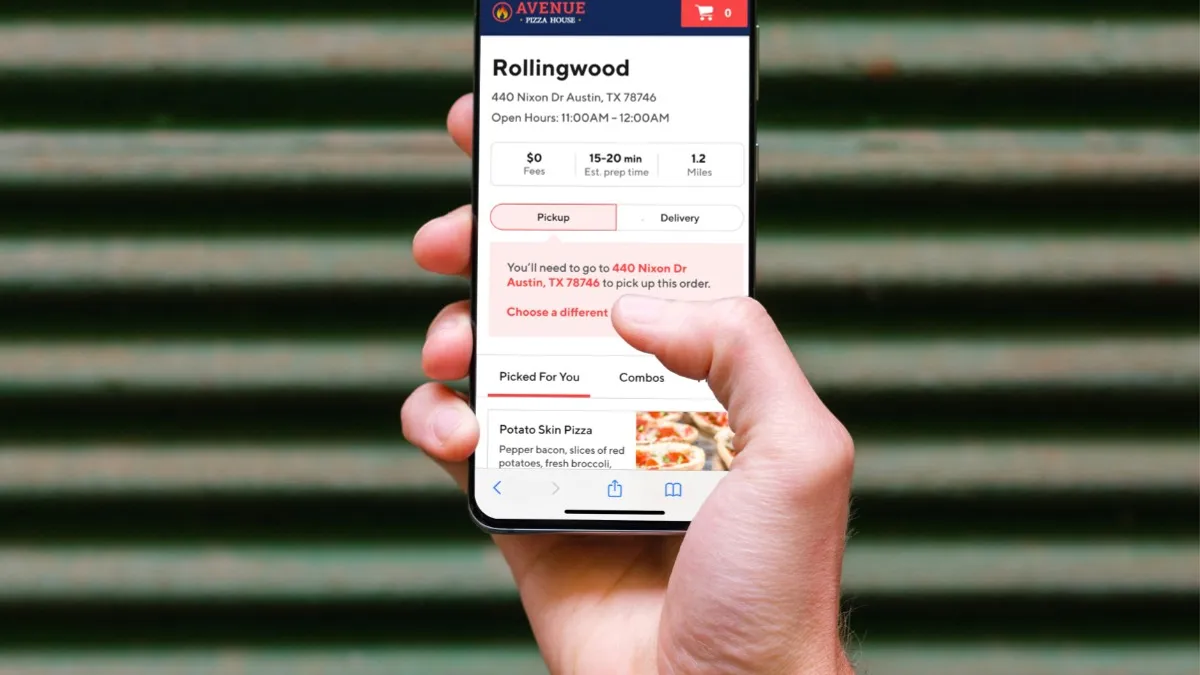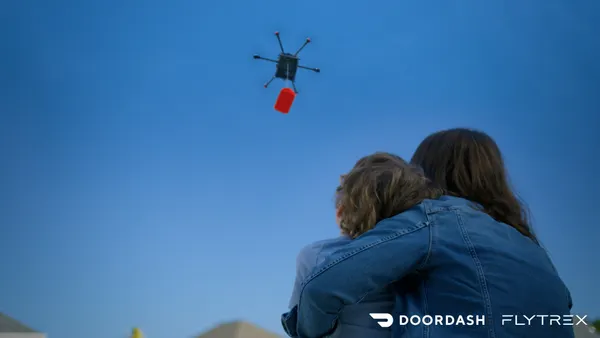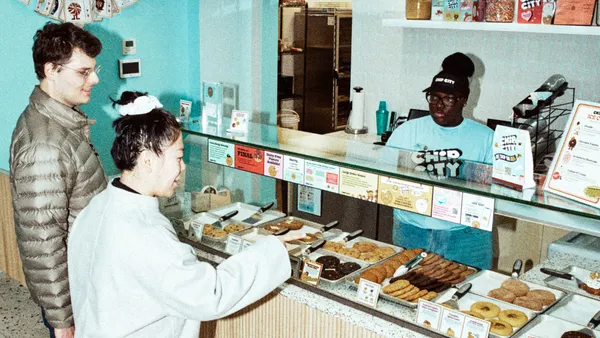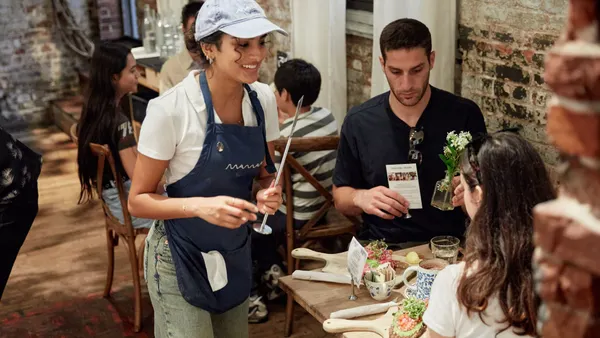UPDATE, April 23, 2021: Olo and DoorDash reached a multi-year agreement and have resolved their contract dispute on Thursday, according to a press release. With this deal, the two companies will continue to work together on different products for their shared merchant base. They also agreed to settle and dismiss DoorDash's original lawsuit.
Dive Brief:
- DoorDash has sued Olo, accusing the company of breach of contract, fraudulent inducement and concealment, according to court documents filed on Tuesday in the Supreme Court of the State of New York.
- The food delivery provider claims that under its initial agreement with Olo includes "most-favored-nation" clauses in which Olo promises to offer its lowest fees compared to other delivery providers.
- DoorDash originally sued Olo seeking $7 million in damages in October. The lawsuit arose after DoorDash acquired Caviar, when it learned that Olo was charging DoorDash higher fees compared to other platforms.
Dive Insight:
The lawsuit comes at a pivotal time for Olo, which became public in mid-March and raised an initial $450 million. DoorDash said in the lawsuit that it is Olo's largest business partner and accounts for almost 20% of Olo's revenue. Olo said in its S-1 filing before it went public that a termination of its agreement with DoorDash would "materially and adversely impact our revenue and could impair our profitability."
The disagreement appears to be heating up with the Tuesday court documents opposing Olo's motion to dismiss the case.
"As Olo has already set forth, DoorDash's allegations are baseless," the company said in an emailed statement. "Despite all of DoorDash's litigation rhetoric, the evidence speaks for itself. Olo will not comment further on ongoing litigation. Olo looks forward to continuing to work with DoorDash for the benefit of the restaurant industry."
DoorDash's partnership with Olo began on March 30, 2017, through its Rails and Dispatch programs. Rails allow orders placed on platforms like DoorDash to be sent directly to restaurants while Dispatch connects restaurants with third-party food delivery providers, according to the lawsuit.
"DoorDash would not have contracted with Olo without Olo's commitment that DoorDash was receiving Olo’s lowest fees," the court filing said, adding that Olo inflated its own revenues by taking tens of millions of dollars more than DoorDash would have provided if the original agreement was honored.
According to the Tuesday court documents, DoorDash said it approached Olo with evidence of breach of contract and sought an amicable solution, but Olo "doubled down," taking the position that the initial clauses that guaranteed the most favorable fees disappeared after six months through a minor contract revision. DoorDash claims that Olo said DoorDash never had the right to Olo’s lowest fees, according to the lawsuit.
"One would think a business such as Olo would be sure to deal squarely with its biggest business partner," the court filing said. "But Olo did just the opposite to keep its windfall revenues on its books for its IPO."
The court document also claims that after DoorDash sued, Olo filed a motion to dismiss as a delay tactic and induced DoorDash to postpone its litigation as Olo's IPO approached, saying it would enter good faith negotiations, but DoorDash claims Olo reversed course after the IPO was done.















